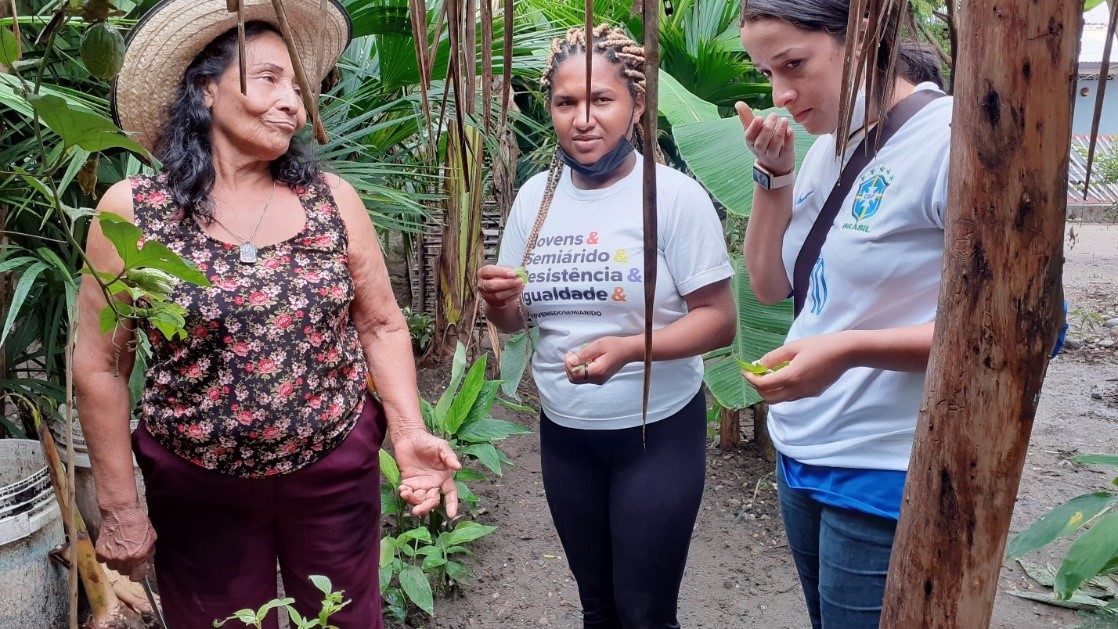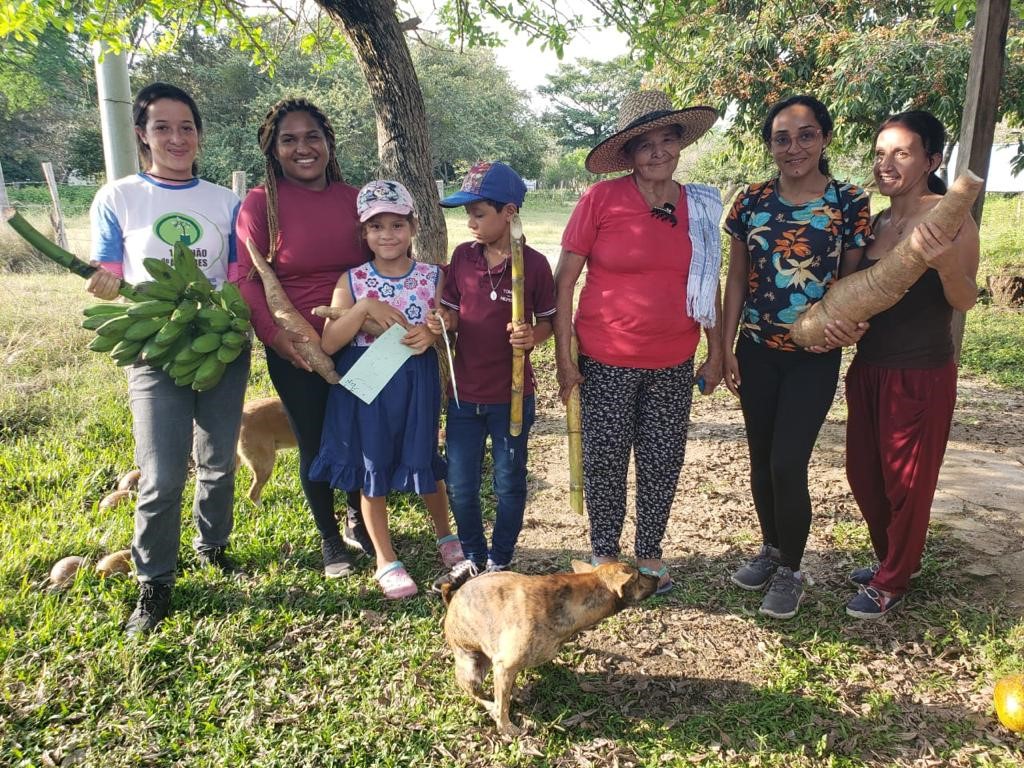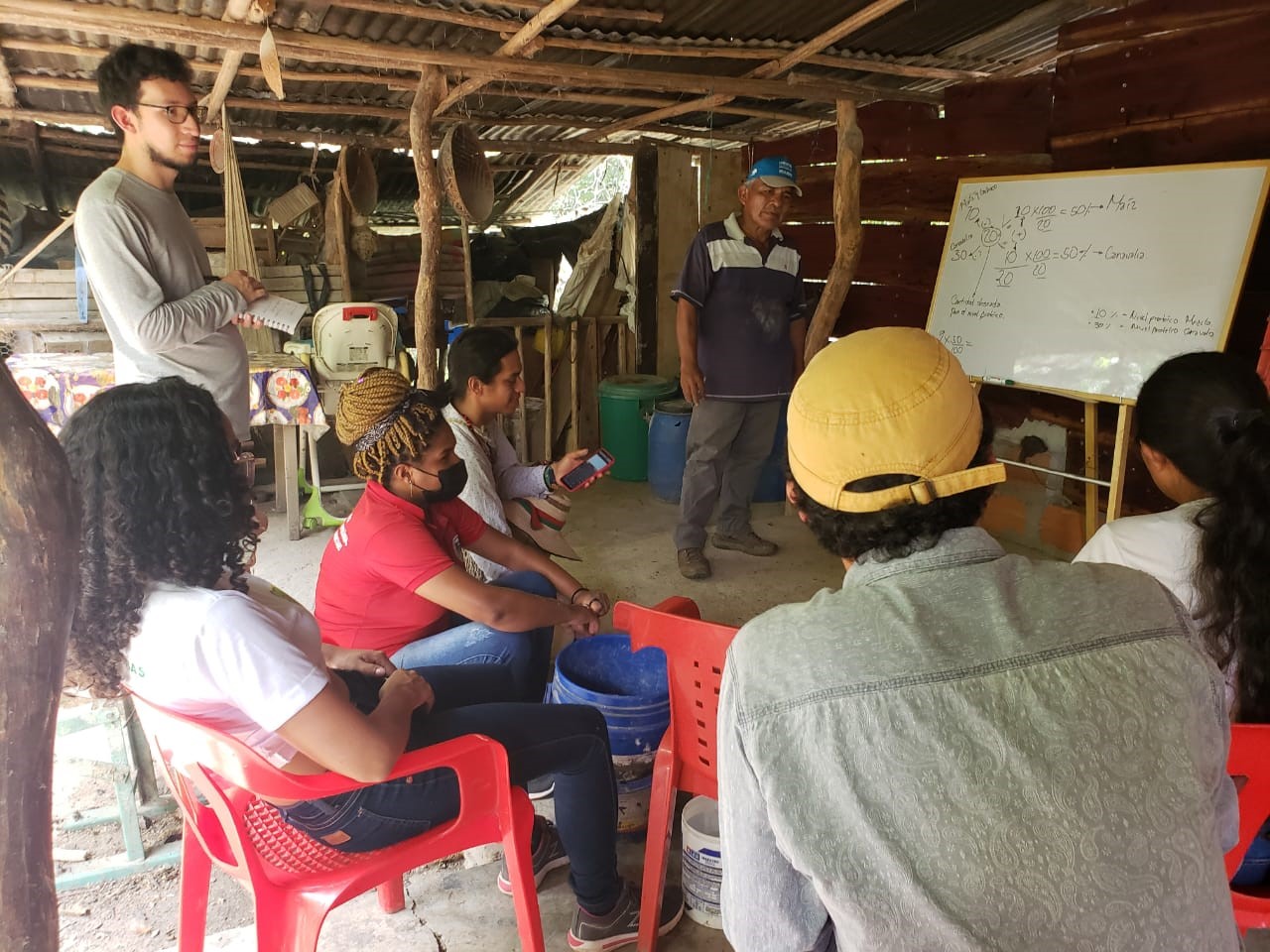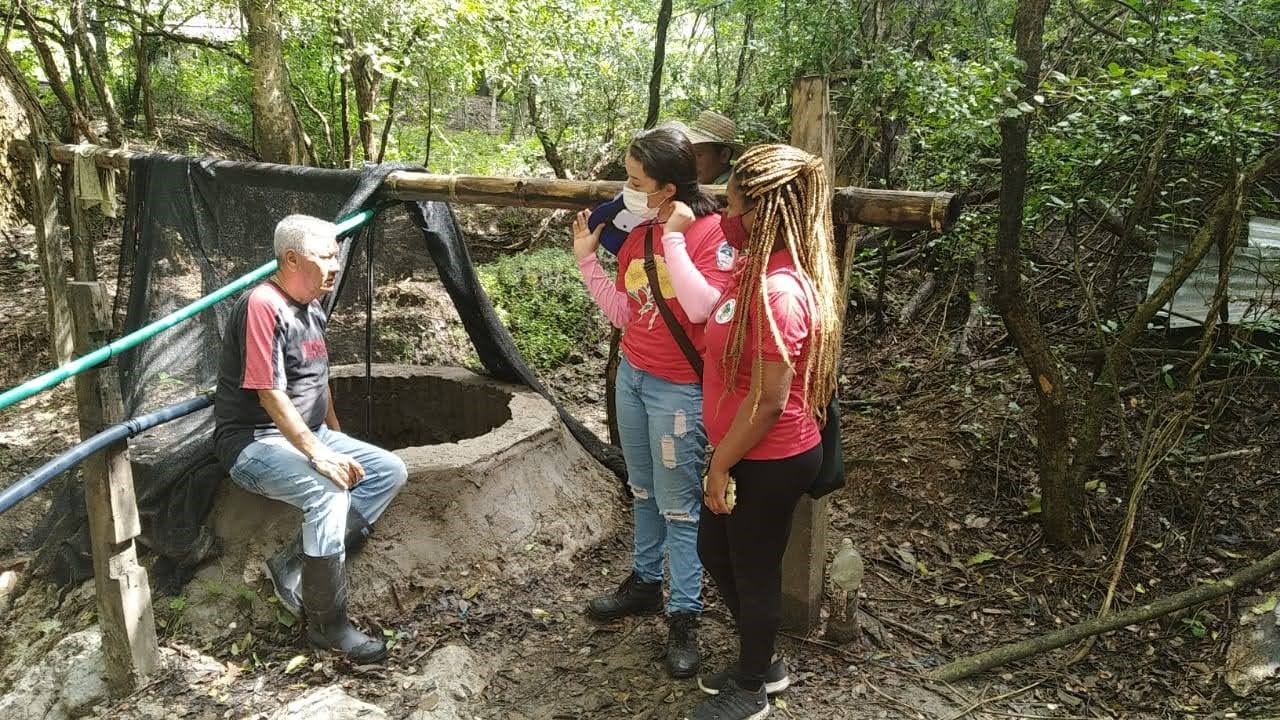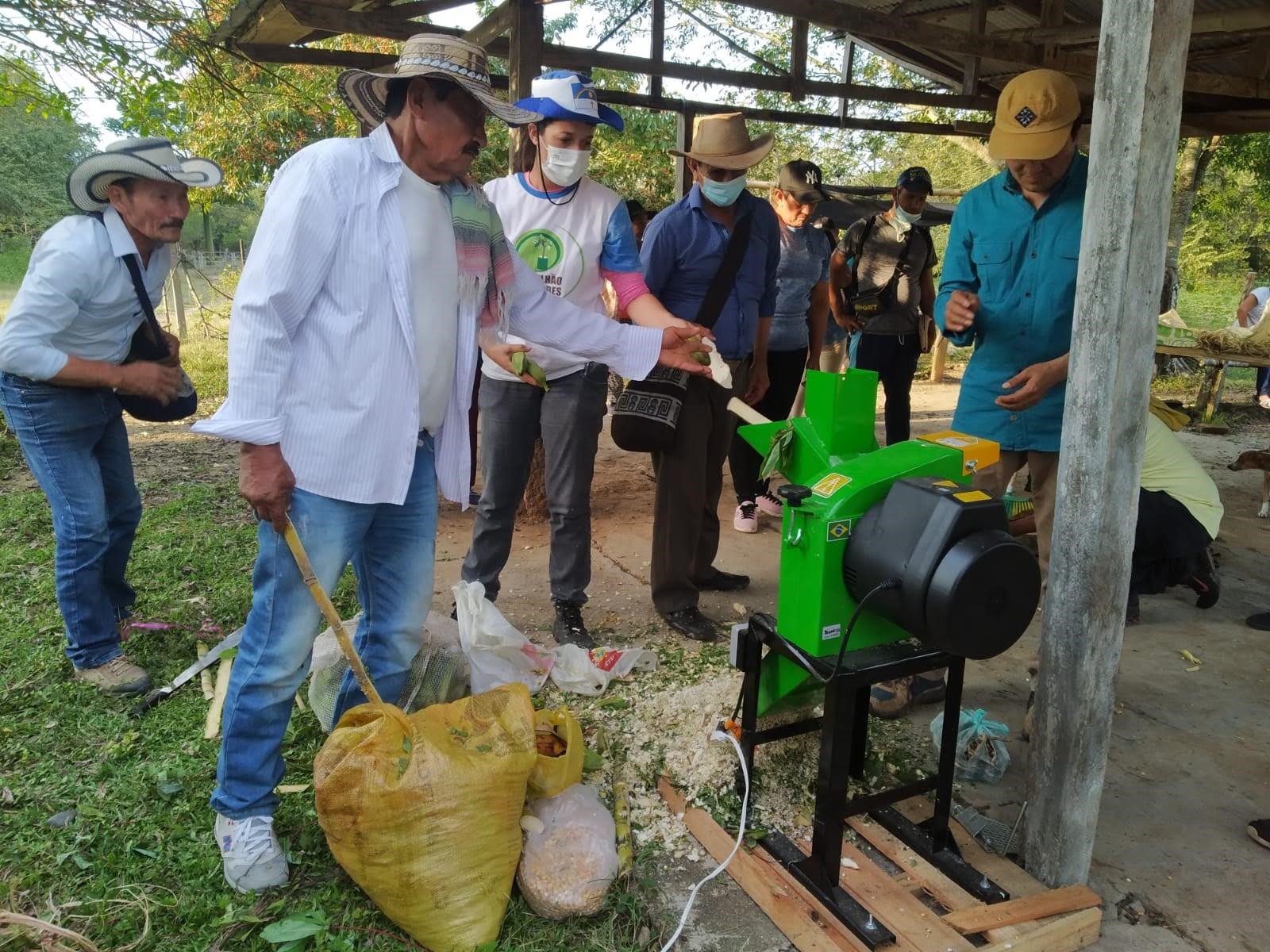 Knowledge Internship Programme in Semi-arid Regions of Latin America
Youth-led intergenerational knowledge sharing
Knowledge Internship Programme in Semi-arid Regions of Latin America
Youth-led intergenerational knowledge sharing

Challenges
Rural youth in Latin America face greater disadvantages than their urban counterparts, having lower levels of education and income and more difficult labour integration. The situation is even more complicated for women, indigenous people and Afro-descendant communities. Although rural youth can be central actors in development, as they are more likely to embrace new approaches and technologies, public policies for youth often adopt an urban perspective. This increases the exclusion and social vulnerability of youth in rural areas.
In addition, rural youth tend to enter the labour market earlier than their urban peers and often are in low-productivity jobs with lower incomes and less social security coverage. In countries with a projected increase in rural populations, greater attention to rural youth is critical to mitigate, among other things, pressure on land and natural resources and stem urban migration. It is therefore necessary to map and promote successful practices targeting this demographic and focus on the intergenerational sharing of knowledge that will support youth empowerment and capacity for political and social dialogue.
Towards a Solution
Contextualized education and the valorization of local knowledge are two important pillars for a sustainable and fertile environment for the development of rural youth. With these priorities in mind, the Semear International Programme, an initiative funded by the International Fund for Agricultural Development (IFAD) and implemented by the Inter-American Institute for Agriculture Cooperation (IICA), and the Latin America Semiarid Platform joined forces to design an internship programme. This joint programme targets rural youth in three semi-arid regions in Latin America: the Trinational Chaco, the Central American Dry Corridor and the Brazilian Semiarid. The programme’s objective is to mobilize and expose young leaders to practices in rural economic and social systems related to their areas of interest.
The initiative is tailored to demands identified by the youth themselves, and emphasizes access to land, agroecology and gender equality in rural areas. After selected interns undergo practical field experiences, it is hoped that they will adapt and replicate the knowledge they have captured in their home context, thus strengthening the youth role as agents of change, promoting dynamic rural economic growth (SDG2) and improving the food and nutritional security of their communities (SDG1). The internship programme focuses is enabling a continuous flow of knowledge exchange among participants and is building a regional network.
National and international youth commissions were created to govern the programme. These two levels of participatory governance are important forums to coordinate and validate programming decisions. The International Commission, composed of 14 young people from Argentina, Bolivia, Brazil, El Salvador and Paraguay, hold regular virtual meetings, with the chairing responsibility alternating among the countries. Both the international and national commissions worked for a year and a half on the programme’s modalities, defining themes of interest, recipient communities, participant profiles, duration and selection processes. The main thematic areas focused on access to land, natural resources, social economy, original peoples and agroecology (SDGs 2.3, 2.4, and 2.5). The participant selection process took place in the second half of 2021; of 24 applications evaluated, 10 candidates were selected.
The first group of three Brazilian young women farmers travelled to Tolima, Colombia, on March 2022. Over the course of 15 days, they were exposed to experiences in agroecology, building associations, cooperativism and social economy. They visited eight communities, were immersed in the daily routine of their host families and visited processing facilities located within the communities. The second group of seven young farmers from Argentina, Brazil, Bolivia, Paraguay, El Salvador and Nicaragua is scheduled to start their internships in the second half of 2022.
The programme allows participants to exchange information on aspects of their daily lives and common challenges and opportunities. It contributes to the establishment of strong bonds among the commission members, the visited communities and the selected interns, directly empowering a group of 20 young people. The initiative is expected to have a positive spillover effect on at least 2,400 indirect beneficiaries.
The sustainability and scaling-up of the initiative are directly linked to the diverse and established network of partners supporting the programme, in particular the members of the Latin American Semi-Arid Platform. Also, since the programme began, the youth have highlighted the importance of deepening the learning process among peers and of ensuring adequate time and conditions are in place to assimilate the knowledge from other semi-arid regions.
The importance and relevance of rural youth and their role as agents for economic, social and political change are indisputable. It is vital to continue to empower this group by investing in initiatives that promote intergenerational knowledge sharing and rural development, which is essential to fight hunger and poverty in all its aspects (SGDs 1 and 2). The Internship Programme in the Semi-arid Regions of Latin America is a powerful example of a transformational programme designed, led and implemented by youth, taking their needs into account and contributing to mitigating the challenges arising from this group.
Contact Information
Countries involved
Supported by
Implementing Entities
Project Status
Project Period
URL of the practice
Primary SDG
Primary SDG Targets
Secondary SDGs
Secondary SDG Targets
Similar Solutions
| NAME OF SOLUTION | Countries | SDG | Project Status | |
|---|---|---|---|---|
100% Online Electronic Apostille and Legalization Sharing Colombia’s effective e-government system with other countries in the region |
Argentina, Bolivia (Plurinational State of), Brazil, Colombia, El Salvador, Nicaragua, Paraguay | 16 - Peace and Justice Strong Institutions | Completed | View Details |
ADAPT PLAN in Malawi |
Argentina, Bolivia (Plurinational State of), Brazil, Colombia, El Salvador, Nicaragua, Paraguay | 01 - No Poverty 05 - Gender Equality 11 - Sustainable Cities and Communities | Ongoing | View Details |
Addressing Racial and Ethnicity-based Discrimination and Strengthening the Protection of Rural Afro-descendants UNFPA supports data disaggregation as a tool to fight racism and ethnic discrimination |
Argentina, Bolivia (Plurinational State of), Brazil, Colombia, El Salvador, Nicaragua, Paraguay | 01 - No Poverty 02 - Zero Hunger 03 - Good Health and Well-being 05 - Gender Equality 06 - Clean Water and Sanitation 11 - Sustainable Cities and Communities 16 - Peace and Justice Strong Institutions | Ongoing | View Details |
Addressing the Philippine Dairy Sector Challenges Exchanging knowledge between Argentina and the Philippines to improve Philippine local dairy production |
Argentina, Bolivia (Plurinational State of), Brazil, Colombia, El Salvador, Nicaragua, Paraguay | 08 - Decent Work and Economic Growth 17 - Partnerships for the Goals | Ongoing | View Details |
ADELANTE Triangular Cooperation European Union – Latin America and the Caribbean |
Argentina, Bolivia (Plurinational State of), Brazil, Colombia, El Salvador, Nicaragua, Paraguay | 10 - Reduced Inequalities | Ongoing | View Details |
